On May 9th, when Moon Jae-in, the 19th President of the Republic of Korea's term of office ends, an election will be held to elect the 17th President of the Philippines. In addition, 18,000 local government officials, including the vice president, 13 senators, and 300 members of the House of Representatives, will be also elected. As it is an election with great political influence, a lot of attention is focused on the Philippines both from home and abroad. Meanwhile, to understand this election it is necessary to look at the backgrounds of the most influential candidates from the previous generation of leaders to the present. As the scale of the election is large, several interesting situations are taking place. If so, who will be the new 17th president who will lead the Philippines for the next 6 years?
Current Political Status of the Philippines
The Philippines is an archipelago country in the Pacific Ocean made up of more than 7,000 islands in Southeast Asia, with a population of about 110 million. It became a colony of Spain in 1521, the United States in 1898, and Japan in 1942. About 70 years after independence, the Philippines remains a developing country with a wide gap between the rich and poor. On December 17th, 2021, the Philippine Statistics Authority stated that “The First Semester 2021 poverty incidence among the population or the proportion of poor Filipinos whose per capita income is not sufficient to meet their basic food and non-food needs, was estimated at 23.7%.” About a quarter of the population still lives in poverty, while a small number of the upper classes lead luxurious lives. Under these circumstances, the 16th President of the Philippines, who is planning to run in the upcoming 17th presidential election, is Rodrigo Duterte. A former prosecutor, he was elected mayor of Davao City in the Philippines in 1988 and held the position for 22 years, then took office as president in June 2016. The international community criticized him as a dictator for his radical policies and rude comments about foreign leaders. On the contrary, the Filipinos accepted his move to the leadership unseen in previous administrations and showed support for him. Meanwhile, Rodrigo Duterte's key presidential promise was to eradicate drugs. When he was elected president in 2016, he said there were 3 million drug addicts and at least 30,000 traffickers in the Philippines. However, considering those who escaped the crackdown, there was also an analysis that 10% of the 107 million Filipino population at the time was directly or indirectly related to drugs. Thus, immediately after his inauguration, President Rodrigo Duterte declared a “War on Drugs” to forcefully suppress drug-related criminals. About two months later, according to Martin Andanar, Secretary for the Presidential Communications Operations Office, drug offenses across the Philippines fell by 9.8%. In addition, violent crimes such as murder and rape fell by 31%. But after, the hardline crackdown on drug eradication was exacerbated by human rights abuses including murder. In the Rodrigo Duterte led Philippines, drug police officers have been given the power to kill civilians during investigations. Also, the president allowed the killing of suspects on the spot without trial. As a result, large-scale anti-government protests took place in 2017 by the people against the retreat of democracy and the bloody drug war. Nevertheless, as civilian sacrifices in the fight against drugs persisted, in September 2021 the International Criminal Court (ICC) declared an investigation into the Philippine government's “War on Drugs” for crimes against humanity. President Duterte, the subject of the investigation, insisted he would not cooperate with the investigation. It remains to be seen what the ICC and Rodrigo Duterte will each take after the end of the presidential term.
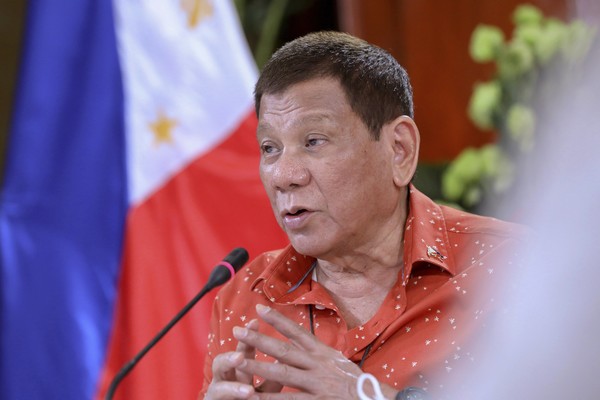
Will Heredity Succession Occur in the Philippines?
The Most Likely Candidate Is a Son of the Former Dictator
From February 8th, about three months before the Philippine presidential election in May, each candidate started their campaign. The key issues in this year's presidential election include solving the economic recession caused by COVID-19 and eradicating corruption in public officials. Much attention is also being paid to relations with China. The two countries are currently in a maritime conflict, with China building its strategic base in the Paracel Islands in the South China Sea, which borders the Philippines and threatening Philippine ships with their navy. The candidate with the most support is Ferdinand Romualdez Marcos Jr., often called “Bongbong” Marcos. He garnered a 60% approval rating in a Philippine poll conducted by Pulse Asia Research Inc. of 2,400 people from January 19th to 24th. His father, Ferdinand Romualdez Marcos, was the 10th former President of the Philippines, a notorious dictator who ruled the Philippines from 1965 to 1986. He declared martial law in 1972 and took control of the judiciary, business, and the media. He is also known to have arrested and tortured thousands of dissidents with police and military power. Former President Ferdinand Romualdez Marcos, his wife Imelda Marcos, and their close associates committed $10 billion in embezzlement of public funds during their tenure. Eventually, on February 25th, 1986, a civil revolution in the Philippines called “People Power” occurred. He resigned as president and died three years after exiling to Hawaii. Not long after that, in the 1990s, the Marcos family returned and succeeded in a political resurgence. On February 25th this year, the 36th anniversary of “People Power,” Reuters reported that thousands of Filipinos rallied across downtown Manila to demand the disqualification of Bongbong Marcos from running. Citizens carried placards such as "No to Marcos" and "Return stolen wealth." In addition, since November of last year, when candidates were already registered, petitions from civic groups to ban the candidate from running for president have continued to appear. They argued that Bongbong Marcos's conviction for tax evasion in 1982-85, while he was in office, should prevent him from running. In fact, according to Philippine law, a history of tax-related crimes is a reason for bans from running for public office. However, the local election commission dismissed the petition on the grounds that the law could not be applied retroactively.
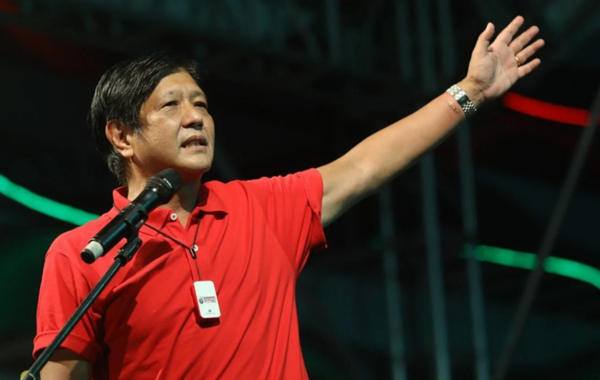
A father who was a dictator, a history of tax evasion, and a clear dissenting opinion. Still, what made Bongbong Marcos the top-ranked presidential candidate? It is young people who use social media a lot compared to the older generation and did not experience or remember Ferdinand Romualdez Marcos’s dictatorship. The Diplomat, an American political media, said, “A presidential campaign’s ability to effectively utilize social media and dominate digital spaces will be instrumental in shaping national opinion.” In the Philippines, where people are highly dependent on social media, the use of social media can change the course of the presidential election. According to The Diplomat, about 80% of the Filipino population as of 2021 are Facebook users, and 85% of the population with internet access uses YouTube. During the 2016 presidential election, former President Rodrigo Duterte proved the influence of social media by hiring a separate team dedicated to distributing content favorable to him on social media. Similarly, Bongbong Marcos and his camp are labeling their father's tenure as a “golden age” on social media. He has millions of followers on both Facebook and YouTube. Election-related promotional materials and vlog videos using YouTube are constantly uploaded on Facebook, and prizes are being held for those who share them. The demographic structure of young people influenced by social media and having not experienced an era of dictatorship account for 52% of all voters as of 2021, is working in favor of Bongbong Marcos. In addition, presidential candidate Bongbong Marcos has pledged to impose death sentences on vicious criminals, create jobs, and unite the country. On March 17th, he announced that the Philippines should continue to maintain its military alliance with the United States. He also promised to ease tensions with China, with which they are also in dispute over territorial issues in the South China Sea. The most important presidential campaign promises he made were national unity and job creation, which were people-oriented and could quell his opposition.
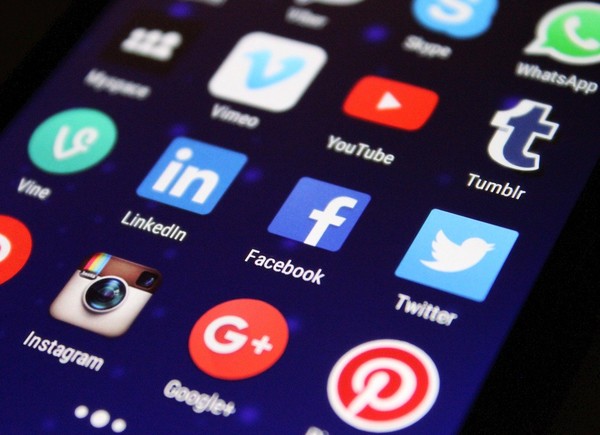
A Father-Daughter Rivalry for the Vice President Almost Unfolds
In the Philippines, a president and a vice president are elected separately. Nevertheless, it is common for presidential and vice-presidential candidates to work together as running mates. The running mate of Bongbong Marcos, who has the highest approval rating among the 17th presidential candidates, is Sara Duterte. Doesn't the name sound familiar? She is the daughter of the current President Rodrigo Duterte. Within the Philippines, the prevailing prediction was that she, who was mayor of Davao, would actually run to become president. The reason lies in her father. Rodrigo Duterte has consistently expressed his intention to run for Vice President after his term following Philippine Constitution, which does not allow for a second presidential term. Then, in October 2021, he announced his withdrawal from his plan to run for vice president and to instead retire from politics, saying that the people did not want him due to dictatorship and human rights abuses. This is why the prospect of Sara Duterte as the presidential nominee prevailed. It was taken for granted that she would try to take over the power of her father who is stepping down from his powers. But on November 13th, Sara Duterte surprised the Filipino political and foreign press by putting her own name on her nomination for vice president. After Sara Duterte's announcement of her candidacy for vice president, another shock came when Rodrigo Duterte announced his run for vice president. Seeing the potential of the election being a “family drama,” the Washington Post wrote, “Sara Duterte has long sought to differentiate her politics from those of her father, but analysts had not expected them to compete against each other.” Amid the attention of the Filipino people, politicians, and foreign media, Rodrigo Duterte eventually gave up his candidacy for vice president and decided to run for the Senate. The possibility of the presidential election becoming a father-daughter competition disappeared and running mates Bongbong Marcos and Sara Duterte began campaigning under the name of the "Uni-Team". The two candidates promised to revitalize the Philippines, while Sara Dueterte pledged to make military service mandatory for 18-year-olds and strengthen the legal system. Additionally, with Sara Duterte taking the top spot in the vice president preference survey, the Marcos-Duterte family became more likely to retain power in a new generation of Filipino politics.
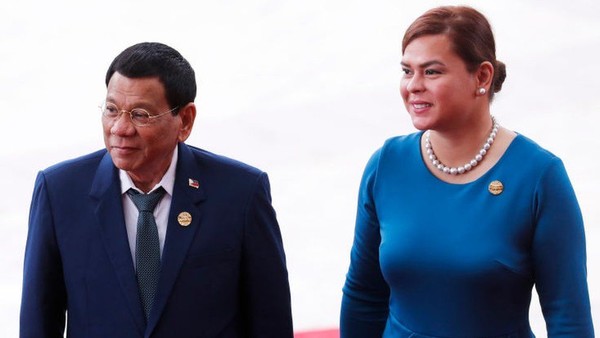
Other Candidates from Various Backgrounds
Besides Bongbong Marcos, there are other presidential candidates. The first is Vice President Leni Robredo, who ranked second in the 2021 poll. A former human rights lawyer, she is the only woman with a presidential nomination this year. She values transparency in the public sector, making her pledge to take care of the people and strengthen the health care system. If she wins, she will be the third female president of the Philippines. Next is Francisco Moreno Domagoso, the mayor of Manila and a former movie star. He entered politics in 1998 when he was elected to the city council. Contrary to Bongbong Marcos, Francisco Domagoso has pledged to take a hardline stance against China, and pressure it to comply with international law. His running mate is Willi Ong, a popular doctor who has 16 million followers on Facebook. The next presidential candidate is Filipino boxing hero Manny Pacquiao. He is a legend in boxing who became the first in the world to win ten championship titles in eight weight divisions. After Retiring in September 2021, he worked as a senator. He insisted strongly that if he were elected, he would imprison corrupt officials. He also went on to criticize President Rodrigo Duterte's pro-China policies, while also making similar pledges to combat drugs. With the emergence of candidates from various backgrounds, the Philippine presidential election drew more attention.
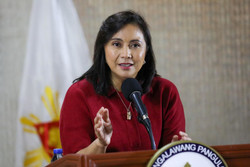
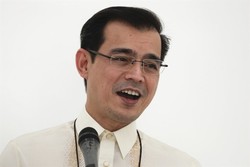
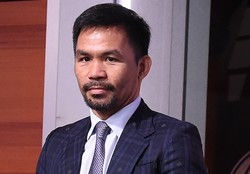
The election day in the Philippines, which will elect the president, vice president, and tens of thousands of public officials is May 9th. This is a fatal day that will determine the future of the Philippines for years to come. The candidates for the president and vice president, who ranked first in the poll, are the son of a dictator and the daughter of the current president, respectively. Filipinos are currently in hardship due to poverty and the gap between the rich and the poor. It is hoped that the Philippine governemt, which will be decided on May 9th, will lead the country with the citizens’ safety as the top priority.

